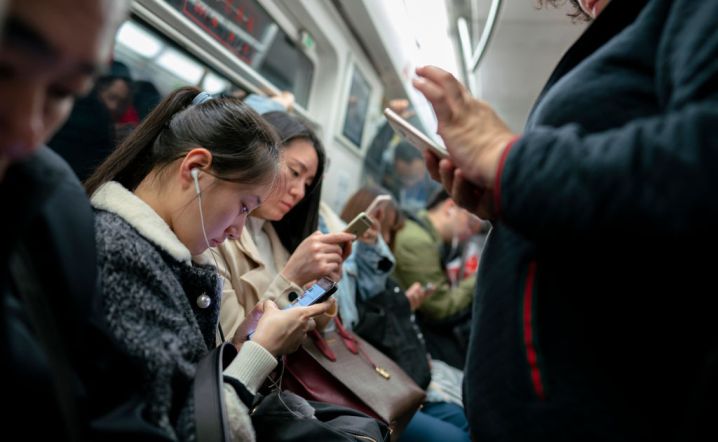This past Wednesday, September 25, Amazon announced a veritable boatload of new gadgets. There were smart night lights, smart microwaves, smart glasses, and even smart rings; but despite the seemingly random nature of the devices that were announced, they all shared a common thread: a stark and clearly intentional lack of displays.
Now, don’t get me wrong; I don’t think Amazon is doing this for altruistic reasons. These gadget announcements definitely aren’t part of some elaborate scheme to usher in a screenless utopian future that Jeff Bezos envisioned during an acid trip at Burning Man. Rather, this is most likely a logical strategic move for Amazon. The company’s smartphones and tablets aren’t exactly outselling those from Apple and Samsung, but its Alexa-enabled smart speakers are a massive hit with consumers — so it makes sense for the company to double (or quintuple) down on what’s working and pump out a bunch more voice-controlled gadgets.

Still, regardless of Amazon’s underlying motives, it seems to be steering us toward a world that isn’t so dominated by glowing, blinking, attention-stealing screens — and that’s something I think we can all get behind.
Screenage Wasteland
At this point, it’s no secret that screen overload is a problem. Numerous bestselling books have been written on the subject, and countless scientific studies have examined how screens affect us physically, mentally, and socially. But you don’t have to read anything to see the trend.
Evidence of our problematic relationship with screens can be found everywhere. People do digital detoxes now. Phubbing (a word that describes the act of snubbing someone in a social setting by looking at your phone instead of paying attention) is now an official word in many dictionaries. Companies have even developed glasses and contact lenses that allegedly protect your eyeballs from the retina-ruining levels of blue light emanating from our monitors, tablets, smartphones, and smartwatches. Don’t even get me started on texting and driving.

Yet, in spite of the fact that screen overload is such a widely recognized problem, screens are still an omnipresent part of modern life. We just can’t seem to kick the habit. Why? Because up until very recently, there wasn’t any other option. The high-tech world we’ve built for ourselves runs on clicking, tapping, and entering text — and all of those things require you to focus your attention on some sort of display.
It doesn’t have to be like this, though. Speech recognition technology is now advanced enough for us to perform web searches, set reminders, dictate text messages, and even control smart home devices using nothing but spoken commands. I don’t know about you, but I can’t wait for that list to expand. If we could bake this technology into more screenless devices — things like headphones, rings, and non-AR glasses — it would theoretically allow us to enjoy the benefits of mobile technology without constantly having to disconnect from the physical world and stare into a liquid crystal distraction.
If we’re ever going to break the cycle and return to a world where screens don’t command our attention so much, we need more devices that allow us to interact with technology exclusively via voice — and that’s precisely what Amazon is building.
Making it mainstream
Now to be fair, Amazon definitely isn’t pioneering something new here. Google and Apple also have voice assistants that you can talk to through your headphones, Facebook is apparently building a set of voice-controlled smart glasses, and startups all over the globe have been working on stuff like this for years.

As such, I don’t think what Amazon is doing is special because it’s innovative or new — it’s special simply because it’s Amazon that’s doing it. There’s no other company on earth that can popularize something with sheer brute force quite like Amazon. Look at Kindles. Look at Echo Dots. Look at Prime Day. If there’s any company that’s going to bring voice control to the masses and eventually get us to the point where screens aren’t such an oppressively essential part of everyday life, I think it’s Amazon.
It feels weird to say, but for once, I think the company is pushing our technological world in the right direction.
…Now if only it could pay its fair share of taxes and give employees a reasonable wage!



